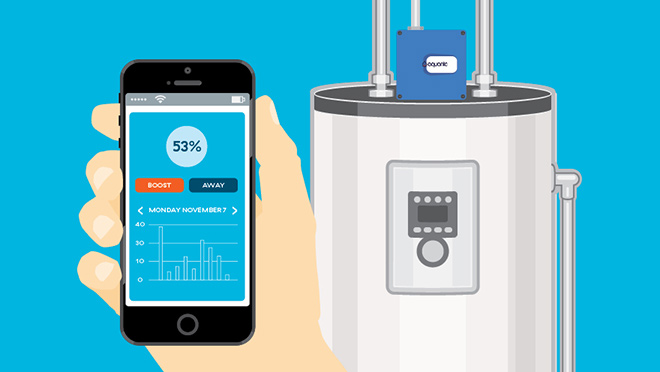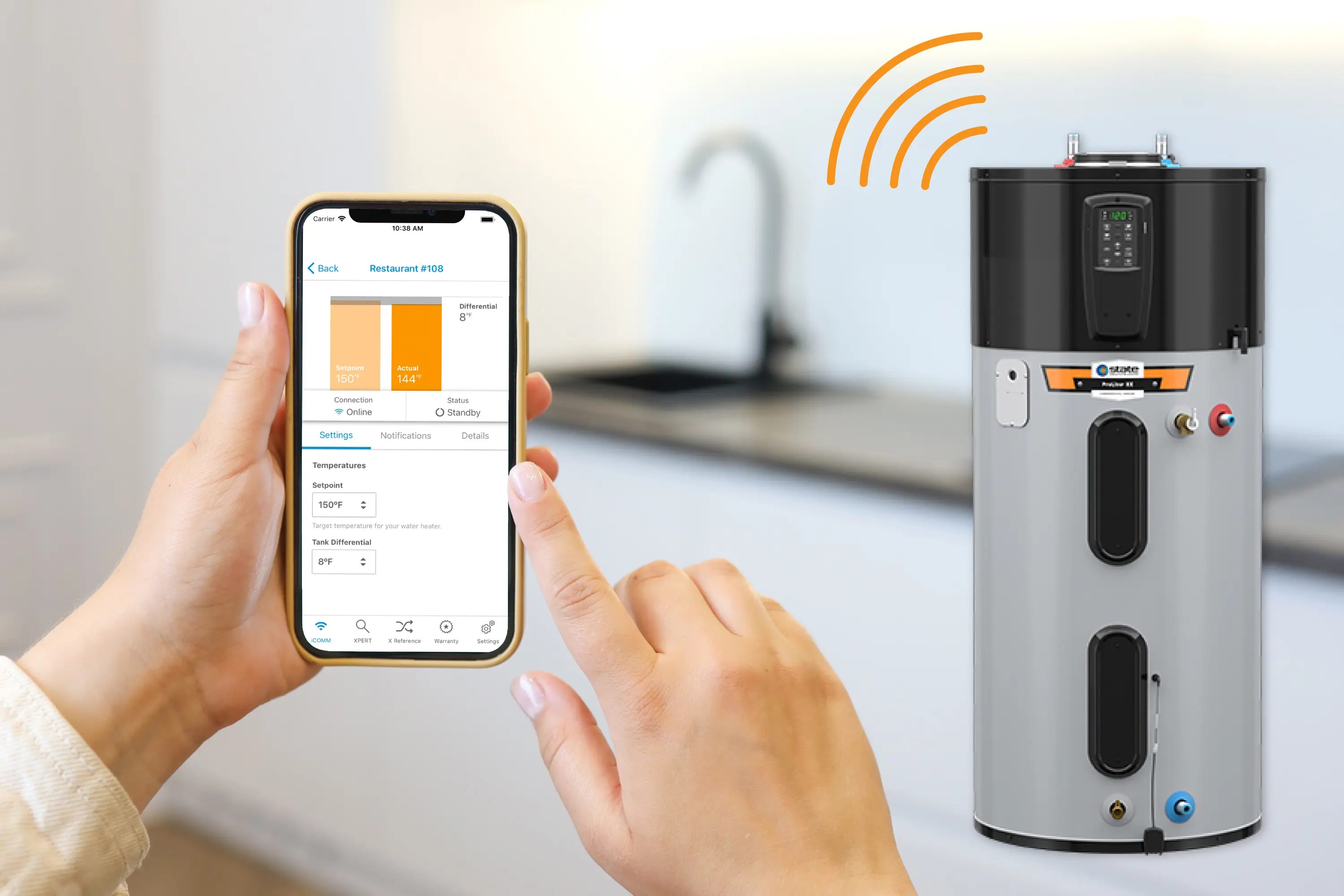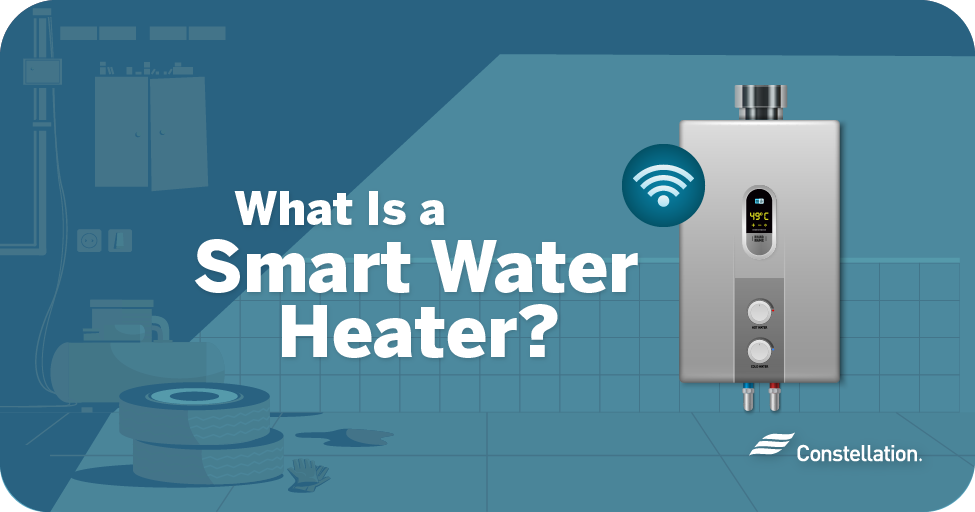A smart water heater is worth it for energy efficiency and convenience. Homeowners can save on utility bills while enjoying remote control features.
Smart water heaters represent a significant advancement in home technology. These systems allow users to monitor and adjust their water heating needs remotely, often through a smartphone app. They optimize energy use by learning your schedule and preferences, which can lead to substantial savings on energy bills.
Many smart models also provide alerts for maintenance issues, ensuring that your system runs efficiently. As energy costs rise, investing in a smart water heater can lead to long-term savings and enhanced comfort in your home. Transitioning to a smart system may be a wise choice for environmentally conscious homeowners.

Credit: www.bchydro.com
Page Contents
Introduction To Smart Water Heaters
Smart water heaters are changing how we heat water. They offer better efficiency and energy savings. These systems use advanced technology to manage water heating.
What sets smart water heaters apart? They can be controlled through smartphones or smart home systems. This feature allows users to adjust temperatures easily. Some models even learn your schedule to optimize usage.
Water heating technology has evolved significantly. Traditional heaters often waste energy. Newer smart models reduce this waste. They heat water only when needed, saving money and resources.
| Feature | Traditional Water Heater | Smart Water Heater |
|---|---|---|
| Control | Manual | Smartphone/Remote |
| Energy Efficiency | Lower | Higher |
| Learning Capability | No | Yes |
How Smart Water Heaters Operate
Smart water heaters have many core features that improve efficiency. They use sensors to monitor temperature and usage. This helps save energy and reduce costs. Users can control them via smartphone apps or voice commands. This makes it easy to adjust settings anytime, anywhere.
The user interface is simple and friendly. Most models show real-time data on energy consumption. Notifications alert users about maintenance needs or issues. This ensures the heater runs smoothly and lasts longer.
With these advanced controls, smart water heaters provide convenience and peace of mind. They also help in managing hot water use effectively. Overall, they make heating water easier and smarter.
Economic Analysis
Smart water heaters have higher initial costs than traditional ones. These costs can be up to $1,500 or more. Traditional models usually range from $300 to $800. Smart heaters offer advanced features like remote control and energy monitoring.
Long-term savings with smart heaters can be significant. They typically save 10-30% on energy bills. Over time, these savings can offset the higher upfront costs. Choosing a smart heater may also increase your home’s value.
| Type | Initial Cost | Energy Savings |
|---|---|---|
| Traditional Heater | $300 – $800 | 10% Savings |
| Smart Heater | $1,500+ | 10-30% Savings |

Credit: showroom.coburns.com
Environmental Impact
Smart water heaters offer great energy efficiency. They use less energy than traditional models. This helps to reduce your carbon footprint significantly. Lower energy use means lower greenhouse gas emissions.
Many smart heaters use advanced technology. They adapt to your usage patterns. This means they heat water only when needed. This smart feature saves energy and money.
Choosing a smart water heater can lead to long-term savings. Lower energy bills can add up over time. Investing in one also benefits the environment.
Installation And Maintenance
Choosing between professional and DIY installation can impact your smart water heater’s efficiency. Professional installation ensures correct setup and compliance with local codes. It may cost more but saves time and potential future repairs. DIY installation can be cheaper and rewarding for handy homeowners. However, it requires knowledge and the right tools.
Ongoing maintenance is crucial for optimal performance. Regular checks can prevent issues. Flushing the tank yearly removes sediment buildup. Inspecting the anode rod every few years helps prevent rust. Keep an eye on temperature settings to ensure energy efficiency. Simple tasks can extend the life of your water heater.
User Experiences And Reviews
Many users report significant savings on their energy bills with smart water heaters. These units adjust heating based on usage patterns. This means they only heat water when needed, reducing waste.
Ease of use is a major benefit. Smart water heaters can be controlled through a mobile app. This allows users to set schedules and monitor usage from anywhere. Notifications alert users about performance and maintenance needs.
Real-life experiences show that customers appreciate the efficiency of these devices. Many claim a noticeable drop in costs after installation. Reviews highlight the convenience of remote access and control.
Future Of Water Heating
Smart water heaters offer innovative solutions for efficient heating. They use advanced technologies to save energy. Many models learn your hot water habits. This means they can heat water when you need it.
Emerging technologies include Wi-Fi connectivity and smart sensors. These features allow remote control via smartphones. Users can monitor energy usage in real-time. This leads to better efficiency and lower bills.
Predictions suggest that smart water heaters will integrate with other smart home devices. This could create a seamless home experience. Imagine a system that knows when to fill the tub for a bath. Such integration will enhance comfort and convenience.
Making The Decision
Assessing your needs is important before choosing a smart water heater. Consider your household size and daily water usage. A larger family may benefit from a high-capacity model.
Check your energy efficiency goals. Smart models can reduce energy costs significantly. Some units offer remote control and monitoring features.
Think about your budget. Smart water heaters may have a higher upfront cost. However, savings on energy bills can make them a wise investment over time.
Evaluate local incentives. Some areas offer rebates for energy-efficient appliances. This can help offset the initial price.

Credit: blog.constellation.com
Frequently Asked Questions
Is A Smart Hot Water Heater Worth It?
A smart hot water heater can save energy and reduce utility bills. It offers remote control and monitoring features for convenience. Investing in one is often worth it for long-term savings and increased efficiency. Evaluate your needs and compare models to find the best fit for your home.
How Much Does A Smart Water Heater Save?
A smart water heater can save homeowners between 10% to 20% on energy bills. By optimizing heating schedules and monitoring usage, it reduces unnecessary energy consumption. Over time, these savings add up, making it a cost-effective investment for efficient water heating.
What Is The Difference Between A Smart Water Heater And A Regular Water Heater?
A smart water heater connects to Wi-Fi, allowing remote control and monitoring. It optimizes energy use based on usage patterns. A regular water heater lacks these features, providing basic heating without smart technology. This makes smart water heaters more efficient and convenient for modern homes.
What Is A Smart Tank Water Heater?
A smart tank water heater provides efficient hot water management. It uses advanced technology to monitor usage patterns and optimize energy consumption. Users can control settings remotely via a smartphone app. This results in energy savings and enhanced convenience, making it a modern choice for home heating needs.
Conclusion
Investing in a smart water heater can lead to significant energy savings and enhanced convenience. These units offer precise temperature control and remote monitoring, making them an attractive option for modern homes. Weigh the initial costs against long-term benefits to decide if it fits your needs and budget.
